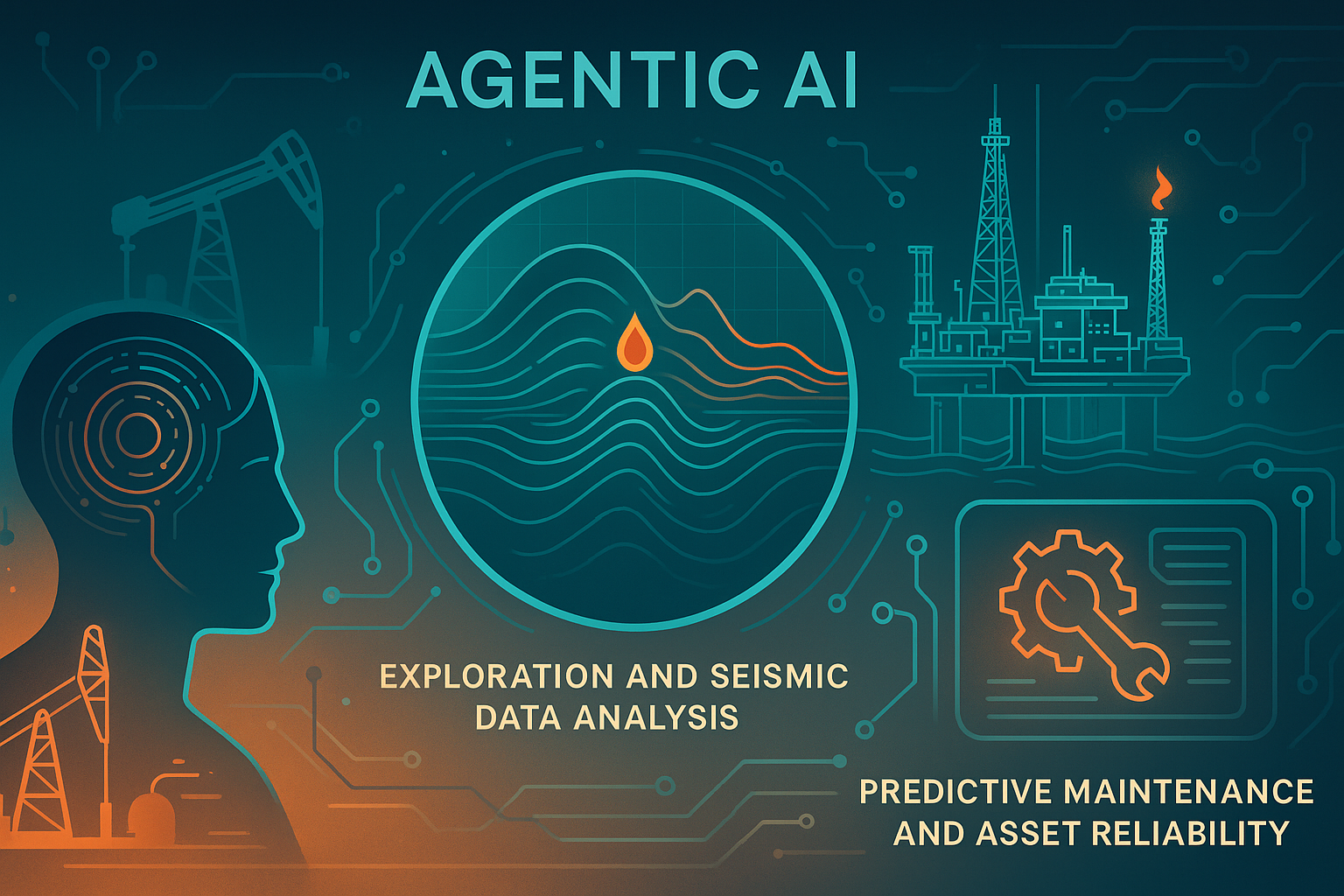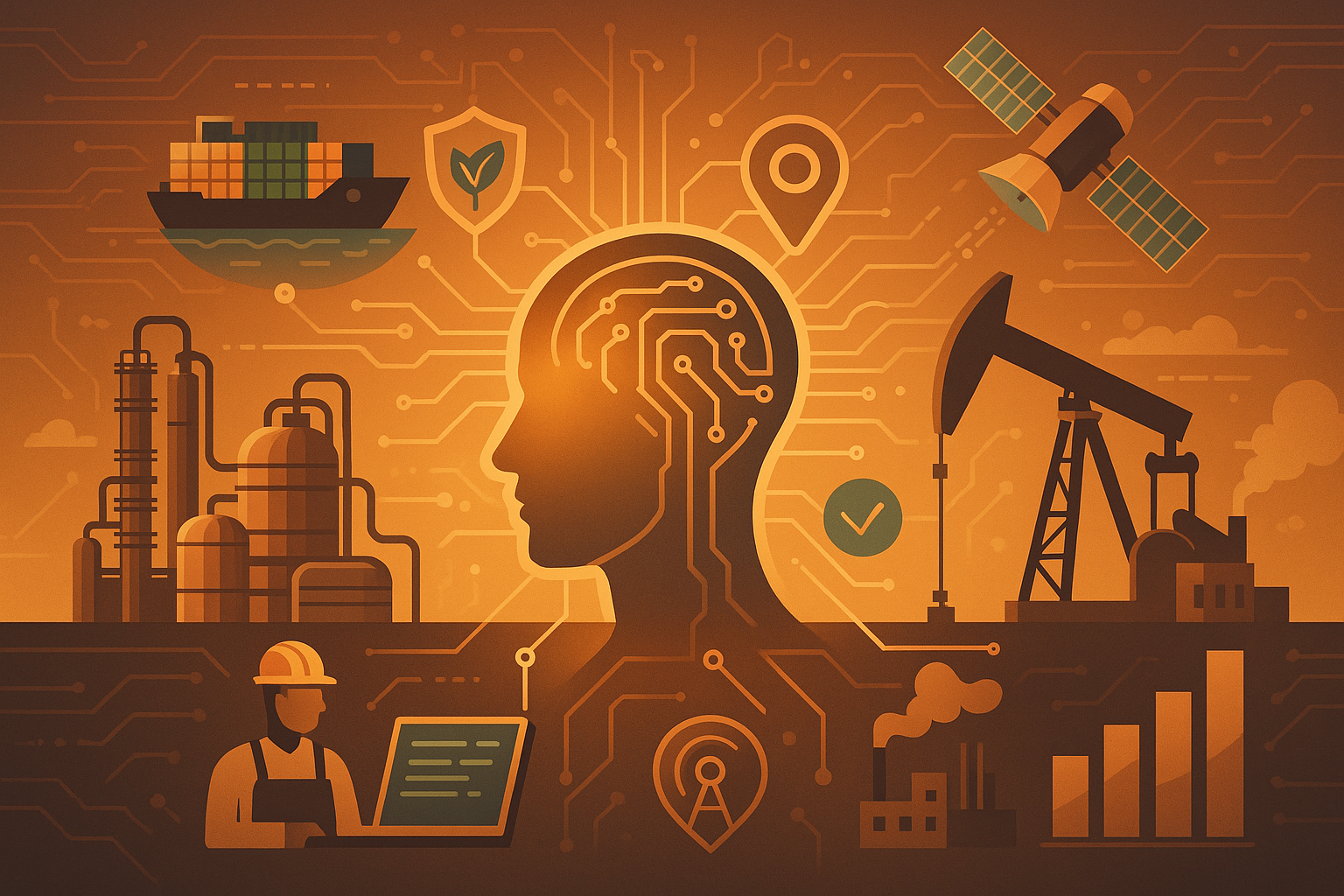Join our WhatsApp Community
AI-powered WhatsApp community for insights, support, and real-time collaboration.
AI agents are reshaping oil & gas with predictive maintenance, workflow automation & safer operations—driving efficiency and transformation.

| Why is AI important in the banking sector? | The shift from traditional in-person banking to online and mobile platforms has increased customer demand for instant, personalized service. |
| AI Virtual Assistants in Focus: | Banks are investing in AI-driven virtual assistants to create hyper-personalised, real-time solutions that improve customer experiences. |
| What is the top challenge of using AI in banking? | Inefficiencies like higher Average Handling Time (AHT), lack of real-time data, and limited personalization hinder existing customer service strategies. |
| Limits of Traditional Automation: | Automated systems need more nuanced queries, making them less effective for high-value customers with complex needs. |
| What are the benefits of AI chatbots in Banking? | AI virtual assistants enhance efficiency, reduce operational costs, and empower CSRs by handling repetitive tasks and offering personalized interactions. |
| Future Outlook of AI-enabled Virtual Assistants: | AI will transform the role of CSRs into more strategic, relationship-focused positions while continuing to elevate the customer experience in banking. |
Oil and gas companies run some of the most complex operations on the planet. Exploration spans deserts and oceans. Drilling rigs operate in harsh, unpredictable environments. Refineries juggle thousands of moving parts, and pipelines stretch across continents. Each node in this chain produces massive amounts of data, much of which goes underutilized.
Digital transformation has made inroads: IoT sensors monitor pipelines, cloud computing aggregates production data, and analytics tools crunch forecasts. Yet, the human bottleneck remains. Teams still interpret dashboards, switch between siloed systems, and take manual decisions that delay action.
That’s the gap Agentic AI fills. Instead of waiting for human direction, AI agents observe, analyze, plan, and act — becoming a new kind of digital workforce for energy.
This shift is similar to how AI agents are already redefining BI and ROI in enterprises.
Traditional AI gives you predictions and reports. Agentic AI gives you action. These aren’t just models running in the background but autonomous AI agents that can chain tasks, make decisions, and execute across enterprise systems.
For Oil & Gas, this shift is critical. An AI drilling agent can read live data from SCADA systems, benchmark against safety protocols, and autonomously adjust parameters. A compliance agent can process thousands of environmental data streams and directly update ESG reports without waiting for a manager.
With Fluid GPT at the center and tuned through agentic benchmarks, these agents aren’t generic chatbots. They’re domain-ready, explainable, and integrated into workflows from the ground up.
For companies evaluating adoption, this is similar to the decision-making guide outlined in choosing the right enterprise AI provider.
Exploration often means interpreting terabytes of seismic imaging and geophysical data to identify promising drilling zones. Historically, this takes teams of geologists months to narrow down.
Agentic AI agents can handle the entire data pipeline: ingest seismic maps, overlay historical drilling records, compare against satellite datasets, and filter out noise. Instead of simply surfacing anomalies, the agent proposes a ranked list of drill sites with probability scores, estimated risks, and expected yield.
On the business side, this means faster go/no-go decisions and reduced exploration costs. On the tech side, agents plug into data lakes, run models across GPUs in the cloud, and continuously update insights as new seismic scans come in. Geoscientists remain in charge, but with an always-on AI exploration analyst at their side.

A refinery or offshore platform may have hundreds of thousands of sensors streaming temperature, pressure, vibration, and flow data every second. No human can monitor that volume continuously.
Agentic AI agents excel here. They use anomaly detection models and historical maintenance records to not only predict when equipment might fail but to autonomously act. An agent can:
This closes the loop between detection and resolution. It cuts unplanned downtime, increases operational reliability, and even optimizes workforce allocation. In industries where downtime can cost millions per day, autonomous maintenance is a game-changer.
Drilling presents constant risks: pressure kicks, blowouts, and equipment malfunctions can spiral into accidents. Traditionally, drill operators balance dozens of indicators in real-time — a cognitive overload.
An Agentic AI drilling copilot continuously monitors downhole pressure, mud weight, torque, and seismic feedback. If it detects early-warning patterns for a kick, it can autonomously adjust drilling speed, rebalance mud weight, and trigger safety valves. Simultaneously, it documents the incident in compliance logs and informs supervisors.
Beyond safety, AI agents can optimize drilling efficiency by tweaking parameters to reduce wear on drill bits or minimize energy consumption. The result: safer operations and reduced costs per barrel.
Managing oil and gas logistics is like orchestrating a global puzzle. From crude transport to refinery scheduling, disruptions at any point ripple across the chain.
Agentic AI agents can act as supply chain controllers. They analyze shipping routes, monitor weather conditions, track vessel positions, and adjust schedules in real time. If a port strike is predicted, the agent automatically reroutes shipments, negotiates with alternate suppliers, and updates the ERP with revised delivery times.
They can also predict demand fluctuations by analyzing market data, geopolitical events, and refinery consumption trends — allowing proactive stock adjustments. This turns supply chains from reactive systems into anticipatory, resilient networks.
This ties directly to how AI agents accelerate enterprise capabilities across industries.
Regulators and investors increasingly demand transparency on carbon footprints, emissions, and safety metrics. Manual compliance processes can’t keep pace with the volume and granularity required.
Agentic AI compliance agents continuously pull data from sensors monitoring emissions, water quality, and energy use. They combine it with satellite feeds and drone inspections to validate site conditions. Reports that once took months to prepare are generated daily, ready for audit submission.
If emissions exceed thresholds, the agent doesn’t stop at raising alarms. It can launch mitigation workflows — adjusting operations, triggering clean-up protocols, and logging evidence for regulators. For oil and gas companies balancing production with ESG commitments, this is a massive efficiency boost.

One silent risk in oil and gas is knowledge attrition. Decades of hard-won expertise often disappear as senior engineers retire. Training new teams to the same standard is expensive and time-consuming.
Here, Agentic AI agents serve as digital mentors. Trained on historical data, incident reports, and operating manuals, they provide guidance in natural language. A junior engineer can ask, “What’s the protocol if pump vibration exceeds threshold X in offshore rigs?” and get context-specific answers along with recommended workflows.
This democratizes access to institutional knowledge and accelerates workforce upskilling, ensuring that expertise scales across geographies and generations.
For oil and gas, the real strength of Agentic AI lies in deep integration:
This isn’t standalone AI. It’s an intelligent mesh woven into the industry’s digital core.
Fluid AI doesn’t just deliver models. We deliver enterprise-ready digital workers, similar to how AI agents resolve customer issues without CRM queues in other industries.
At Fluid AI, we’re taking Agentic AI beyond theory. Our Fluid GPT platform enables oil and gas enterprises to:
The future of oil and gas won’t be defined by who has the best dashboards. It will be defined by who builds the most effective AI workforce. Those who embrace Agentic AI early will see faster ROI, safer operations, and stronger ESG performance.
This is more than automation. It’s autonomy — and it’s the new competitive advantage.
Every leap in oil and gas — offshore rigs, seismic imaging, digital twins — has redefined the industry. Agentic AI is the next leap. By embedding autonomous AI agents into exploration, drilling, logistics, and compliance, energy companies are creating an AI-powered workforce that never sleeps, never misses a signal, and always acts in real time.
With Fluid AI leading the way, this transformation is no longer on the horizon. It’s already happening.
Fluid AI is an AI company based in Mumbai. We help organizations kickstart their AI journey. If you’re seeking a solution for your organization to enhance customer support, boost employee productivity and make the most of your organization’s data, look no further.
Take the first step on this exciting journey by booking a Free Discovery Call with us today and let us help you make your organization future-ready and unlock the full potential of AI for your organization.

AI-powered WhatsApp community for insights, support, and real-time collaboration.
.webp)
.webp)

Join leading businesses using the
Agentic AI Platform to drive efficiency, innovation, and growth.
AI-powered WhatsApp community for insights, support, and real-time collaboration.